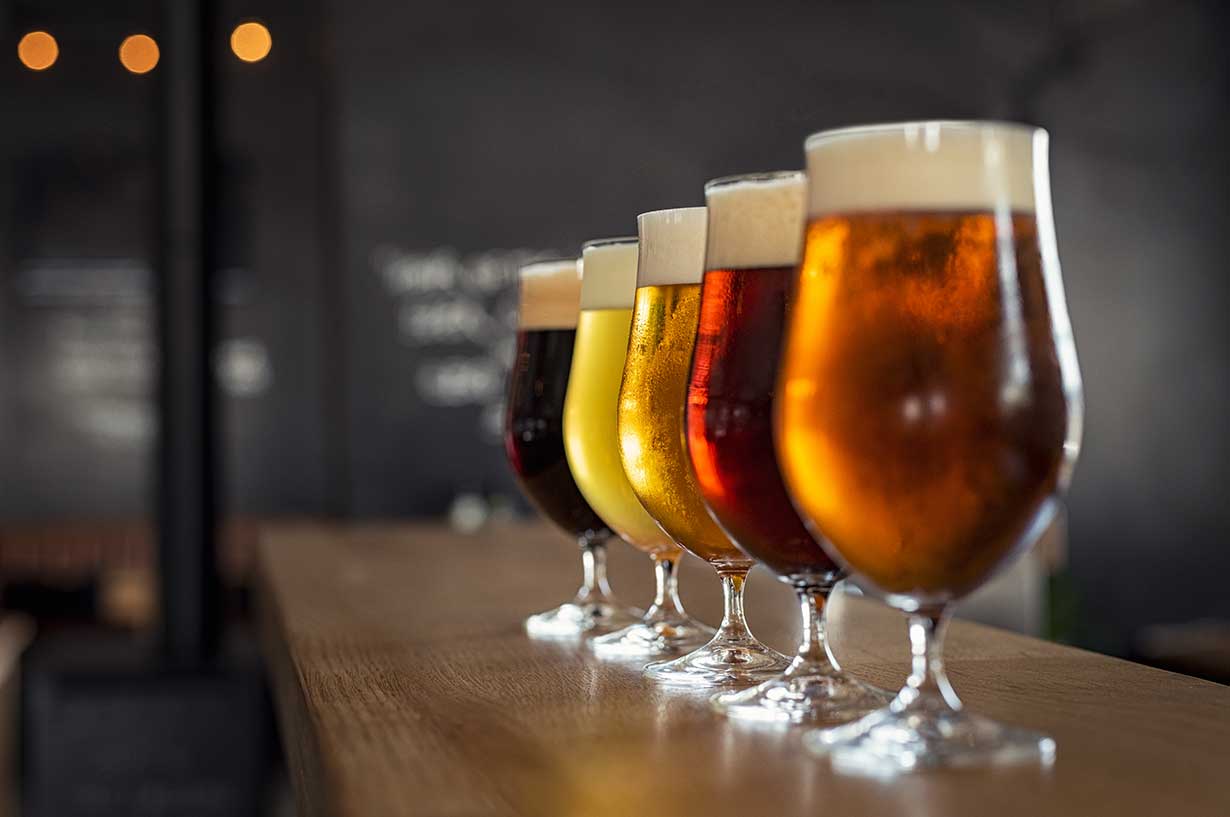How to make beer brine suitable for pork, turkey, chicken, fish and beef brisket. Basic recipe + flavor variations.
Go straight to the Recipe Card or Read on for suitable beer styles and useful protein specific beer brine tips (1 min)
If you want to incorporate beer into a wet brine, use it instead of water to make your brining solution. Add any additional flavors you want, plus the right amount of salt, and you have yourself a tasty and effective beer brine.

Tips for Beer Brined Steak, Brisket & Beer Corned Beef
Tough beef cuts like brisket or eye of round benefit from a beer brine before smoking or roasting. You can also make a beer brine for corned beef brisket. In certain instances you can brine steak. Besides that, beef is generally better suited for marinades and dry rubs (also known as dry brine) than brining, beer brines included.
The main reason to not brine beef is that its flavorful juices ‘bleed out’ and combine with the rest of the brine.
- For beer brined corned beef use your favorite brine recipe and substitute half the water with beer.
- For steak or tough cuts, including smoked brisket, use the recipe as given (think porter of stout) and further flavor with peppercorns, clove, bay leaf.
Best Beer Styles for Beer Brine
The maltier and yeastier the beer, the more flavor will be infused deep inside your protein of choice. Our favorite styles to work with are:
- Belgian ales – their yeast esters are unsurpassed and work with any protein
- Porters and stouts – for hearty roasts or turkey meat
- German lagers – the golden ones like pilsner are perfect for chicken, the darker like Dunkel, Bock or Marzen for pork
- Wheat ales – especially Belgian wit and Hefeweizen
- IPAs – especially bright, citrusy ones – excellent for fish or chicken
Basic Hot Beer Brine Template Recipe in Cast Iron
FAQ
Can you brine meat in alcohol?
Why do you brine beer?
What should I put in my brine?
What is the rule for brine?
Why do you need a beer brine?
The solution penetrates deep into the meat and helps it absorb additional liquid. In result, when the brined protein begins to dry out during cooking it can still retain an adequate degree of moisture and finish juicy. Flavor. A beer brine also flavors the meat deep inside, in contrast to a marinade which only works on the surface.
Does beer have any health benefits?
Beer has no benefits in a healthy diet since it is an alcoholic beverage, which does not provide essential nutrients, but adds empty calories and should be taken in moderation.
What can i brine with beer?
There are basic brining recipes that will help chicken, pork, or turkey stay moist, but for a richer flavor, try brining with a mixture of beer and seasonings. I’ve recently been brining pork and chicken and came up with my own recipe for brining boneless skinless chicken breasts.
How do I choose a beer for brined food?
Be sure that the food is entirely submerged in the brine. The beer imparts maltiness and a yeasty depth of flavor to the brined food (especially certain ales) and when the style affords it – caramel and roasty notes. We usually select additional ingredients with complementary flavors.
